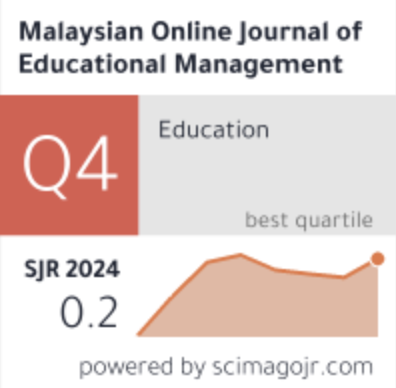EXPERIENTIAL LEARNING AND COLLABORATIVE LEADERSHIP: MODERATING EFFECT OF LEARNING CLIMATE IN EMANCIPATED LEARNING PROGRAM
Keywords:
Experiential Learning, Collaborative Leadership, Learning Climate, Emancipated LearningAbstract
Emancipated learning through experiential activities as a national policy is central in developing student competencies from school to university level. This study aims to determine and analyze the effect of experiential learning in shaping collaborative leadership mediated by the learning climate when students carry out emancipated learning activities. This research uses a quantitative approach with a survey method and uses AMOS version 22.0 structure equation model (SEM) analysis. Data analysis was carried out in stages: descriptive analysis, validity and reliability tests, and hypothesis testing to ensure goodness of fit model. A total of 332 students participating in the emancipated learning program were given an instrument with a Likert scale of 1 (strongly disagree) - 5 (strongly agree) to measure the research variables. The results of the study in testing the two research hypotheses show that experiential learning has a positive and significant effect on student collaborative leadership, and learning climate also strengthens the effect of experiential learning on collaborative leadership. This finding indicates that moderation of learning climate in schools positively impacts the effect of experiential learning on students' collaborative leadership competence in implementing the emancipated learning program.









